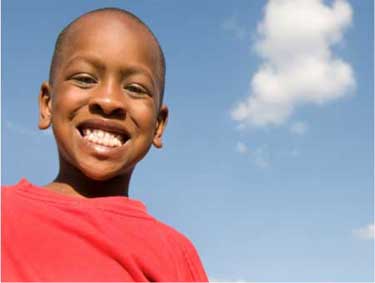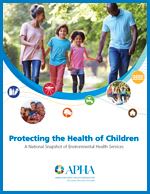Children's Environmental Health
 Children are particularly vulnerable to environmental health hazards.
Children are particularly vulnerable to environmental health hazards.
For their size, they breathe more air and eat more food than adults. Even low levels of environmental health pollutants, like lead, particulate matter or pesticides, can affect children’s physical and mental development and negatively impact their health for the remainder of their life.
BIPOC children and children of low-wealth communities are disproportionately affected.
Historic and current-day policies and practices, such as structural and systemic racism and disinvestment, have led to and continue health inequities and environmental injustices.
Featured Resource
 Protecting the Health of Children: A National Snapshot of Environmental Health Services (PDF)
Protecting the Health of Children: A National Snapshot of Environmental Health Services (PDF)
This report provides a snapshot on the availability and accessibility of children’s environmental health services. A national scan of department of health and department of environmental quality websites was conducted for 48 states to gain insight on the information available to the public about environmental health services for children.
To learn if the public was aware of and used the information available on state websites, APHA hosted forums and engaged with community members in Flint, Michigan, and Washington, D.C. Key challenges identified during the forum discussions included excessive formalities and the lack of coordination among different agencies providing services.
The report recommended intentionally engaging with community members from the start to identify resources, needs and their environmental health priorities to determine and offer needed services.
Additional Resources
Protecting Children's Environmental Health: A Comprehensive Framework
